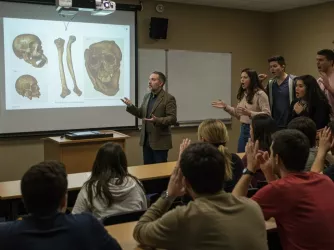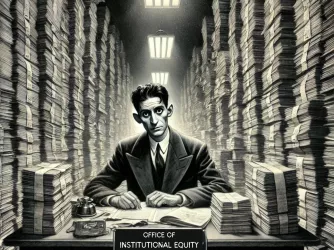Table of Contents
The Watermelon Rolls On
It’s been about a week since FIRE went public with our opposition to Bellevue Community College’s treatment of Professor Peter Ratener for writing a math exam question that involved a person named “Condoleezza” dropping a watermelon off of a roof. Reaction to this case has been strong, and more varied than usual. In my opinion, this is partially because Ratener has walked into a perfect storm, with conservatives angry about what they perceive as mockery of Condoleezza Rice, and liberals angry about Ratener’s raising, wittingly or unwittingly, of a racial stereotype.
I want to reiterate that it is FIRE’s opinion, from carefully evaluating all of the facts, that Ratener did unintentionally bring up this stereotype. People are, of course, free to agree to disagree with our judgment (as well as the judgment of BCC’s own administration). However, I also want to reiterate that it doesn’t matter whether or not Ratener meant to bring up the stereotype—at least not when it comes to considering whether or not we would take his case. FIRE repeatedly uses the maxim “Sunlight is the best disinfectant,” and in this case sunlight absolutely worked, as Greg pointed out in an earlier blog entry. Official punishment for speech is not the best disinfectant—it’s an ugly process that raises with it the specter of lost liberty and arbitrary abuses of power, as it did at Bellevue, where the result of the uproar has been mandatory diversity training for many professors, not just Ratener.
Probably more than any other case FIRE has dealt with, Ratener’s case resembles that of Columbia University law professor George Fletcher, who got in trouble over a question that FIRE described as “the hypothetical case of a woman who was grateful to a man for violence that had, in her view, a beneficial unintended consequence.” That case is a few years old. Sometimes it seems that things never change.
Professor Ratener has apologized profusely for his mistake. With the possible exception of feelings, nobody was hurt. It seems extraordinarily unlikely that he would make such a mistake again. If society is to continue to be free, people like Peter Ratener must not come to be seen as subjects for state action. Remember, a government that has the power to punish those who offend others is certain to use those powers to punish those who offend it. Let’s hope this is the lesson that we will draw from the case of Professor Ratener.
Recent Articles
FIRE’s award-winning Newsdesk covers the free speech news you need to stay informed.

UPDATE: Another federal appeals court backs academic free speech for public employees

Feds to Columbia: ‘You want $400 million in contracts back? Do this (or else)’

A picture is worth a thousand words — unless a college district bans it
